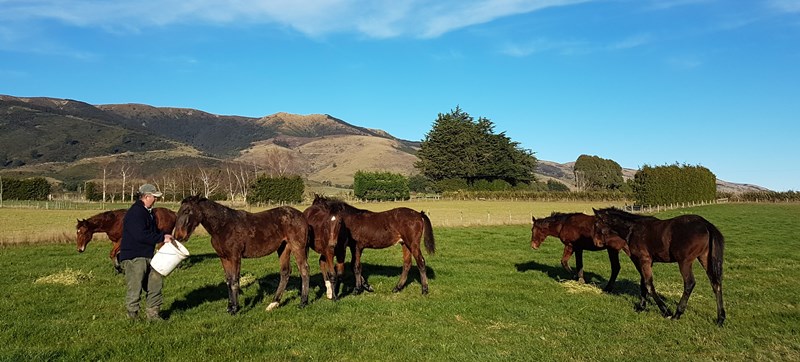Many would agree that the Southern region of the South Island is one of the best places in the country to raise young stock, whether it be lambs, calves or young harness racing standardbreds.

The late Fr Dan Cummings, well known and respected in the harness racing industry was a great believer in the value of the long summer daylight hours of the deep south. A co-owner of Tuapeka Lodge and a consistent producer of yearlings sold at the Sales, he believed the extended daylight hours played a large part in a young horse’s development.
In an interview with him in mid-2000’s he said, “The days are shorter and colder in winter, but as spring progresses into summer the days become two hours longer – one in the morning and one in the evening. I think the process of light affecting grass growth (photosynthesis) means the grass grows for two hours longer at the height of summer in the South.
He spoke of dairy farmers who brought cows down from Taranaki and Waikato in the late 1990s and early 2000s who had noted an increase in production in their herds.
“To their great surprise the same cows produced around 20% more milk in the south than they had in the north. The farmers attributed it to the longer days.”
Fr Dan believed another significant influence from the extra light in relation to breeding, was that an increase in daylight stimulates cycling in the mares. Because that increase occurs later down south, foals tend to be born a month to six weeks later than in the north.
Local vet Brendon Bell agrees that the climate in the deep south is well suited to raising young stock.
“Our temperate climate means there’s plentiful grass over most of the critical phase of a foal’s development, from birth to yearling stage. This supply of grass means minimal hard feed is necessary to raise young horses.”
He adds that the climate gives the Southern region an advantage over the rest of the country.
“Moderate temperatures – not too hot but not really cold, adequate rainfall ensures grass growth over the summer. Somewhat cheaper land prices means more people can own and graze their own horses keeping control in the hands of the horse owner.
He says while the dairy boom has changed farm ownership, there is still a groundswell of farmers who own or graze horses on their properties, in contrast to many horses in other provinces that are agisted at studs.
“Farm based horses exist with other stock which ensures minimal health issues, minimal parasite burdens from cross grazing and normally plentiful feed.”
He says copper, calcium/phosphorus and magnesium are important minerals for good animal development.
Hopefully buyers contemplating the purchase of a southern bred southern reared yearling will be aware of the great start they get in the deep south.
by Bruce Stewart, for Harnesslink

 USA
USA Canada
Canada Australia
Australia New Zealand
New Zealand Europe
Europe UK / IRE
UK / IRE



